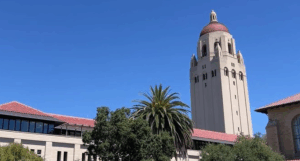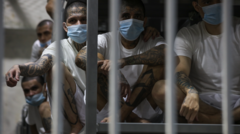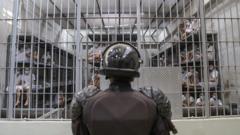A significant clash between the Trump administration and Harvard University unfolds as the administration announces a freeze on funding due to the university's refusal to comply with federal policy changes.
Trump Administration Freezes Harvard Funding Over Policy Disputes

Trump Administration Freezes Harvard Funding Over Policy Disputes
Federal grants and contracts worth over $2.2 billion and $60 million at stake as Harvard stands firm against government demands.
In a stark move signaling tension in higher education governance, the Trump administration declared on April 14 that it will freeze more than $2.2 billion in federal grants and $60 million in contracts to Harvard University. This decision came after the prestigious institution rejected multiple federal demands aimed at reshaping its operational policies.
Among the requests were calls for Harvard to dismantle its Diversity, Equity, and Inclusion (DEI) initiatives, implement a merit-based admissions process, enhance cooperation with immigration authorities, and enforce stricter measures against antisemitism on campus.
In response, Harvard President Alan Garber made a robust statement asserting the university's refusal to compromise its independence or constitutional rights. In a letter addressed to the Harvard community, Garber emphasized that no governmental authority should dictate the educational content or operational framework of private institutions, labeling the funding freeze as a basic threat to academic freedom.
This controversy is part of a broader initiative by the Trump administration targeting elite universities, with other institutions, such as Columbia University, facing similar financial repercussions for non-compliance with federal guidelines.
As the debate intensifies, legal challenges are anticipated. Critics argue that the administration's actions represent a violation of First Amendment rights, claiming it oversteps appropriate boundaries. Conversely, supporters insist that federal funding warrants accountability, particularly when pertaining to civil rights issues and extremist activities.
Clearly, this incident signals a pivotal change in the relationship between the federal government and higher education—indicating just the beginning of a larger ideological battle.




















